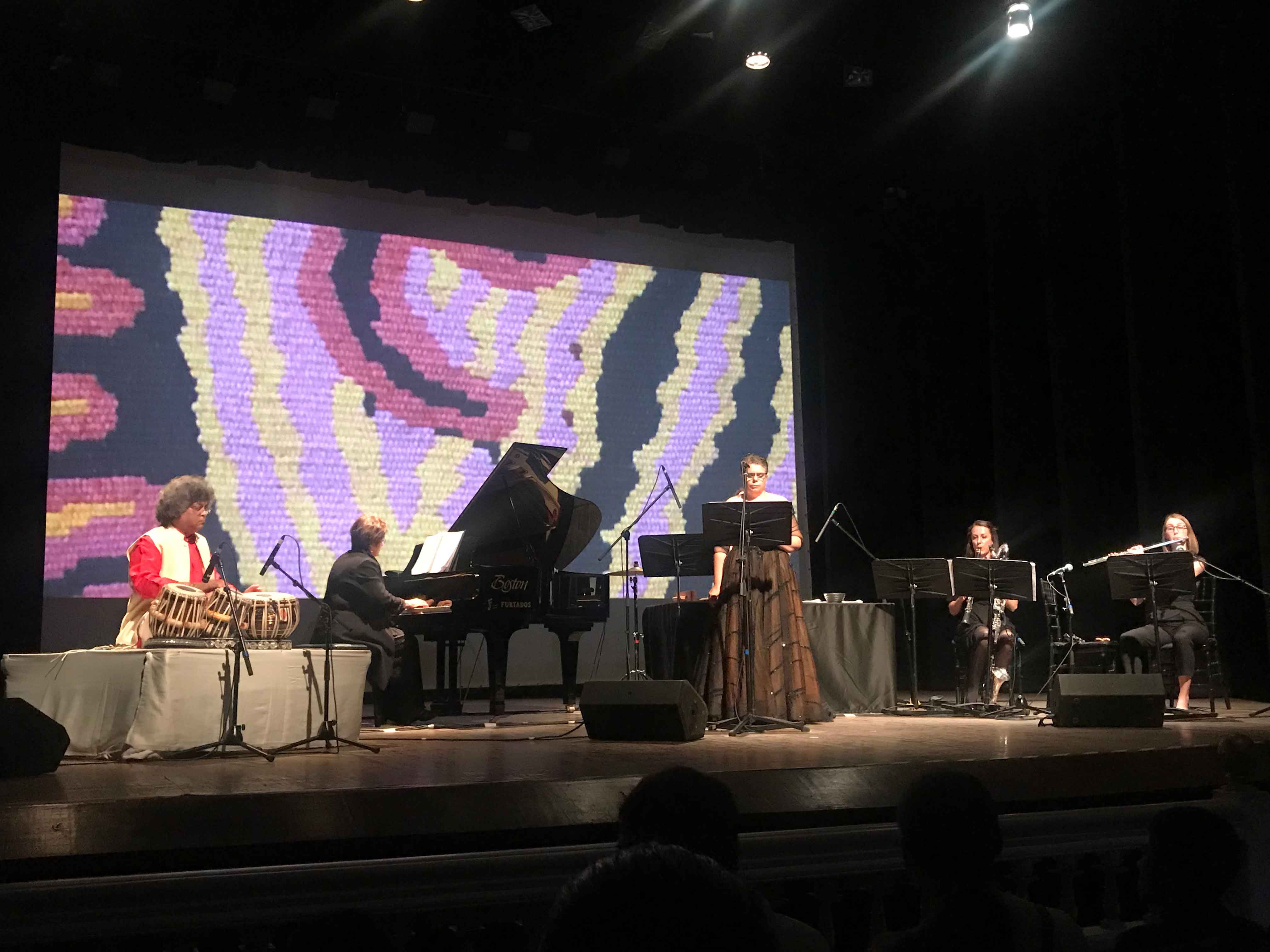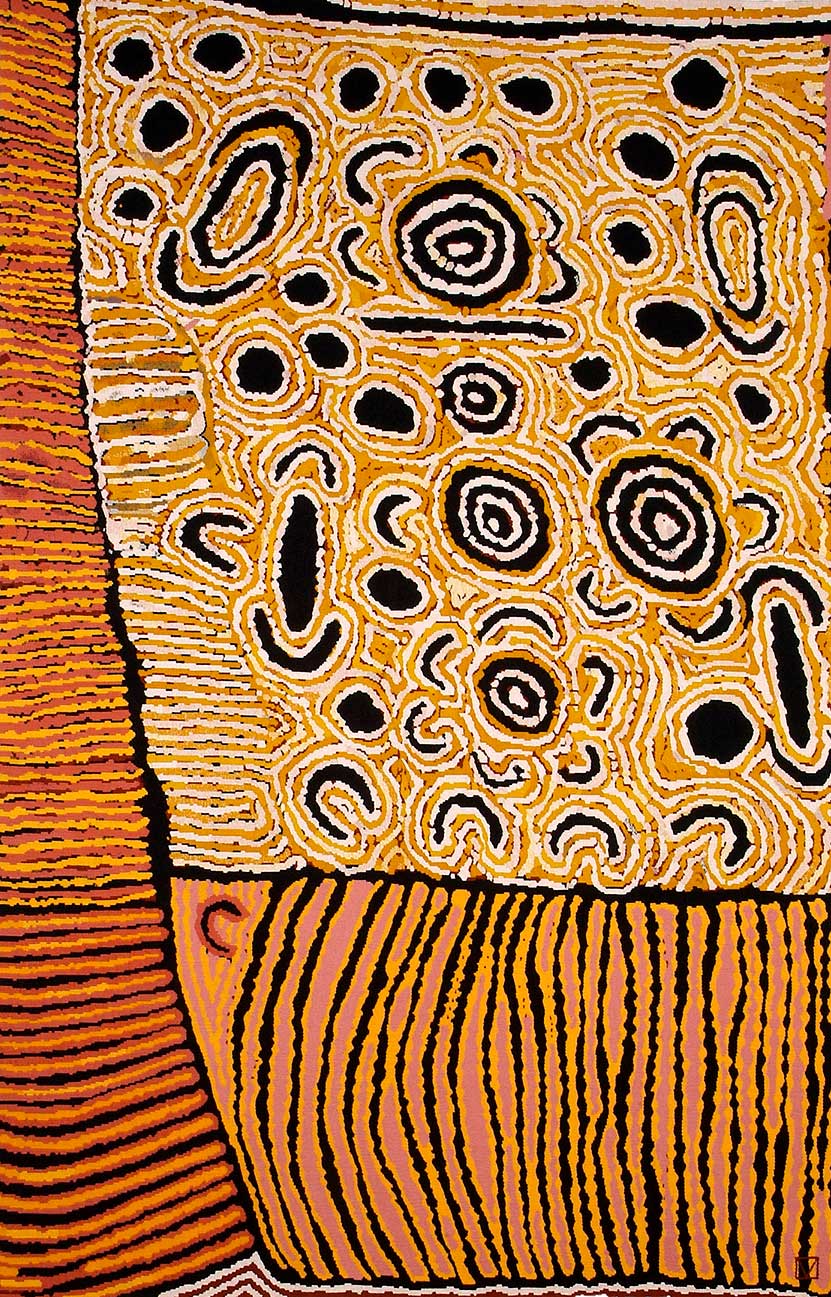'Article 27’, New Delhi
Article 27 responds to Untitled (detail from Kiwirrkurra women’s painting), designed by Nanyuma Napangati and woven at the ATW in 2007 and is currently on display at the new Australian High Commissioner’s Residence in New Delhi.
The title Article 27 refers to the Universal Declaration of Human Rights (UDHR), which was translated into Napangati’s first language in 2015 by members of Pintubi leadership and Dr Sarah Holcombe. This was the first time the UDHR, the world’s most translated document, had been made available in an Aboriginal language. As Cheetham read through the 30 articles she stopped at the 27th; everyone has the right freely to participate in the cultural life of the community, to enjoy the arts and to share in scientific advancement and its benefits.
The literal translation from Pintupi is quite different to the original article and is the one that Cheetham chose to set her music to;
Naampa 27: All the people should gain knowledge of their land, their belonging and their Dreaming. The Government should not persuade the work boss or the police, to prevent that. They should leave them alone without scolding them. It is good for Aboriginal women to gain knowledge about their belonging and they should gather together to follow their Grandmother’s Dreaming.
Featuring artists from Short Black Opera, Rubiks Collective and master tabla player Pandit Ashis SenguptaArticle 27 premiered in Mumbai and New Delhi as part of Australia Fest in 2019.

